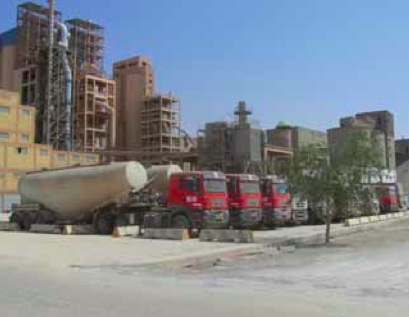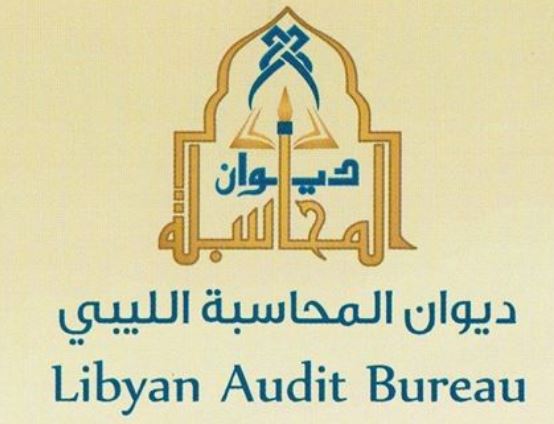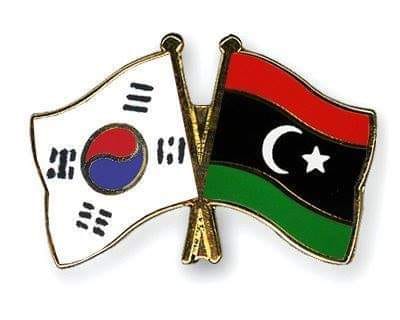Tripoli, 8 May:
A handful of strikers is imperilling the salaries of 1,700 colleagues at its two Benghazi cement plants, says management . . .[restrict]at the foreign joint venture Libyan Cement Company.
The 68 strikers, who called themselves the Workers’ Solidarity Group, are not affiliated to the union in the plant, which they have been blockading since 2 May. On Sunday angry workers mounted a counter-demonstration complaining that the blockade was putting their jobs and salaries at risk.
LCC, which in all employs 2,500 people, is a joint venture between the Economic and Social Development Fund, which comes under the Ministry of Industry and the Austrian materials group Asamer, which owns a 50.6 percent stake in LCC. The company was privatised in 2008 with 90 percent of the shares being vested in ESDF and ten percent reserved for employees. The EDSF has not yet issued these shares, though in 2010 employees received dividend payments. The same year Asamer paid EDSF LD 200 million to give it a controlling interest, inserted management and began an extensive upgrade of the plants to cut their environmental pollution by 95 percent.
Unlike the other blockade in Benghazi at the AGOCO headquarters complex, the LCC protestors are letting workers into the plant. However LCC managing director Robert Solomon told Libya Herald today that because the 33 expatriate employees in the works had been threatened, he had withdrawn them for their own safety.

As a result, he said, the administration is ticking over, cheques are not being raised and signed and supplies, including diesel, are not all being delivered. LCC difficulties have been exacerbated by steep fall in customer orders. In the circumstances, the plant may therefore have to close within a fortnight. LCC’s two other facilities, a third cement plant at Al-Fataiah, Derna and a concrete works at Tajourah in Tripoli are both working properly. Workers at Derna rejected demands from the Workers’ Solidarity Group that they join in the action.
There is a degree of mystery surrounding the precise demands of the strikers, some of whom, the management reports, have shown that they have weapons. According to TV interviews they have given, the strikers want LCC to reinstate sacked workers, fire Qaddafi-era managers, raise salaries, introduce medical insurance and improve plant safety.
Solomon responded that no workers had been fired, medical insurance was a demand in many other industries which LCC was prepared to look at and that safety at the plant was already comparable with European standards. He said that he had asked the strikers to produce evidence that might justify the removal of managers in post under the old regime, which they had failed to do.
He also asserted that the public demands made by the Workers’ Solidarity Group did not match those made privately in negotiations with the company and Dr. Mahmoud Baadi, head of the ESDF. In direct talks with management, the strikers were calling for the expulsion of all foreigners from Libya and the re-nationalisation of LCC.
“These people accuse all the foreigners in the company of being corrupt” said Solomon, “They said: ‘ We do not need to find any proof of wrong-doing. We know you are guilty. You have to go’. ”
LCC had offered the strikers the chance to do an audit to check out their corruption allegations, said Solomon: “We told them we have nothing to fear and nothing to hide. But while you do the audit, let us operate the business normally.”

Solomon also revealed an intervention by Dr Baadi last week on a trip to Benghazi where he invited the strikers to write down and sign their allegations. If they could be proven, they would be acted on. If however they turned out to be false, he warned action would be taken against them instead. No documentary allegations have yet been forthcoming.
According to the company, there are three ringleaders among the strikers, the number of whose pickets on the plants gates now ranges from between six and 20 a day. Kalam Al-Faturi, Hussein Al-Madani, Awad Al-Warfali are all playing a leading role in the protest while a member of LCC’s internal audit department, Omar El Jlali appears to be acting as an advisor to the rest. It is reported that the strikers have set up a parallel management structure for LCC, as if in serious preparation to take over.
The LCC board met today. Part of its business was to discuss the fourth aid convoy that Asamer has organised to Libya which arrived this week (see separate story – “Fourth mercy convoy”). There is clearly considerable dismay at the protest, the genesis of which Solomon believes was in January when he and colleagues arrived to begin te re-commissioning of the Benghazi plant. The gates had been padlocked by the same individuals who are now on strike. At that time they demanded all LD 33 million wages for the previous year, when all the plants were idle, be paid before production could restart.
They eventually agreed to a phased repayment, which said Solomon said meant LCC having to take out loans to meet the cost. As of February, LD 26.5 million had been settled.
LCC management believes but cannot yet prove that the Workers’ Solidarity Group has outside financial support and co-ordination. Observers have speculated that the strike may be inspired by rival cement companies or people linked with the secessionist Cyrenaica Council.
Solomon warned today: “The longer this strike goes on, the more at risk are the salaries of the employees”
When the protest began six days ago, local protection at the plant was withdrawn. The company has been in touch with the government. It is also thought possible that there may soon be a direct approach to Libya from the Austrian government.
Today, talking about both the LCC and AGOCO disputes in Benghazi, the Minister of Planning, Isa Tuwegiar told Libya Herald: “ These are temporary problems. The government does not want to get into clashes. This will be solved very soon, before the elections.”
[/restrict]










